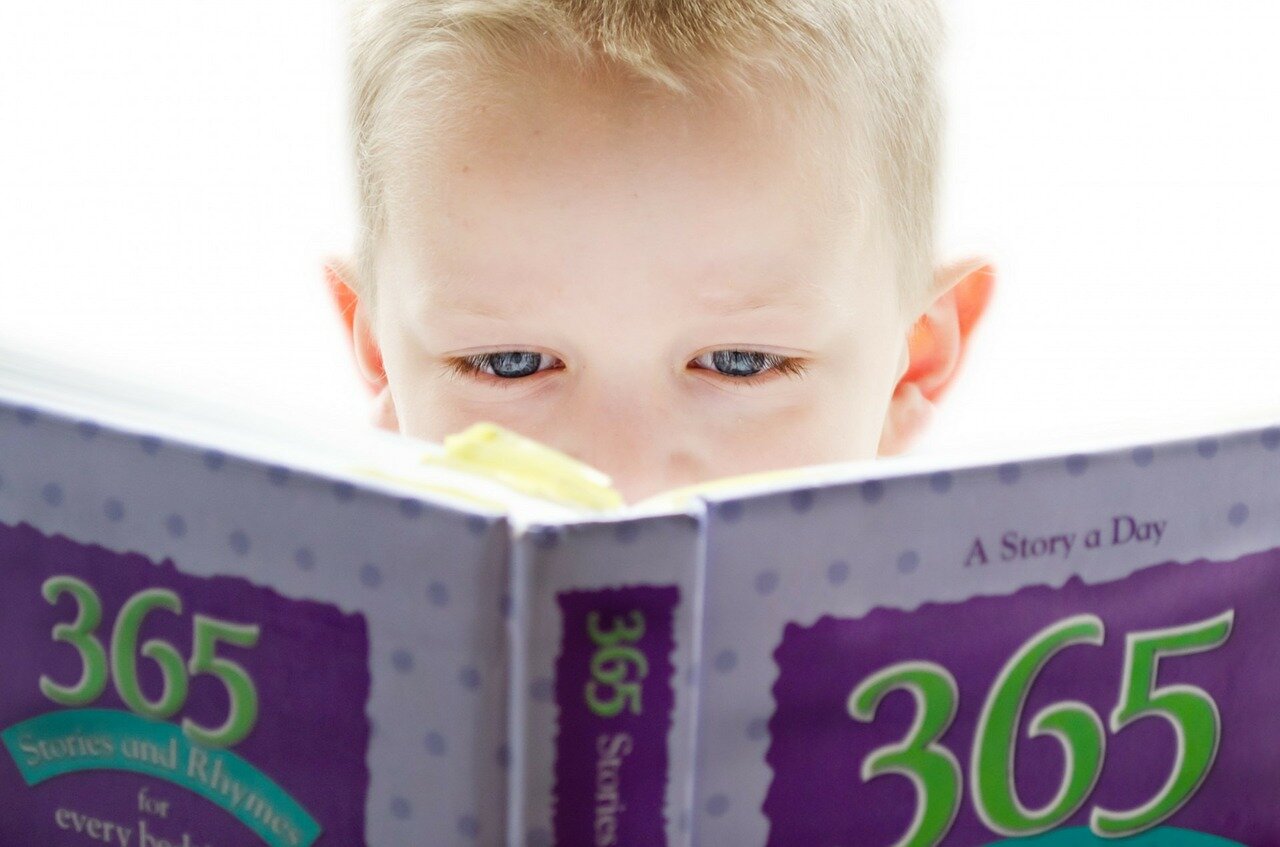Written by Nazneen Aibara, primary school teacher and the teacher-mom behind @the.reading.umbrella
A parent is a child’s first and everlasting teacher. No one knows and understands your child with the same depth and intuition you possess. This is why when a parent tells me that they are worried about their child’s reading or attention span or any other such concern, I never take it lightly.
Reading is an umbrella term that encompasses more than just phonics. Phonics is the buzz word that most parents recognize. However, in addition to phonics, reading also includes the components of phonological awareness, comprehension, fluency, and vocabulary development. A breakdown in any of these can impact a child’s reading ability.
As a parent, you can often pick up signs that would tell you that your child is a struggling reader or could potentially have reading struggles in the future. Many of the difficulties described below can be seen by the time a child begins kindergarten. Interventions can last up to grade 2-3 and after that children usually get formally assessed.
Here are some signs to watch out for: (Please note that a delay or difficulty in any of these DOES NOT mean that your child HAS or WILL HAVE a learning disability)
Phonological awareness issues include:
-
Difficulty in learning common nursery rhymes.
-
An inability to recognize and produce simple rhyming words.
-
Not understanding how many syllables there are in a word. Ex: there is one syllable in the word dog and three syllables in the word dinosaur.
-
Being unable to substitute one sound for another to make a new word. Ex: what word do you make when I take the sound /m/ from mouse and replace it with /h/.
-
Not being able to pronounce familiar words.
-
Not being able to identify words that start with the same letter like ‘doll’, ‘dad’, ‘day’.
In reading print, the child may show:
-
Difficulty in recognizing letters in their name.
-
Lack of understanding of the relationship between letters and sounds.
-
Consistent reading and spelling errors like reading house for horse and letter reversals such as in p and q.
-
Trouble recognizing the same words from one page to the other.
-
No notice of punctuation while reading.
-
Errors in reading due to losing their place on the page, skipping words or entire lines.
-
Overall disinterest in reading or being read to.
Comprehension issues include:
-
Not identifying what’s happening in picture books.
-
Struggling with answering basic questions like who, what, where, etc.
-
The ability to answer basic literal questions but not reflect a deeper understanding.
-
Trouble with making predictions and inferences based on the text.
-
Inability to re-tell a story in the right order.
-
Trouble with relating events with their own life or making other connections.
Sequencing, attention, and organization issues include:
-
Difficulty learning sequential concepts like the alphabet, numbers, days of the week etc.
-
Difficulty in following instructions or sticking to a routine.
-
Getting easily distracted from tasks.
-
Losing their things, clearing up after themselves, forgetting what they are supposed to be doing at a given time.
-
Incorrect recall of factual information.
Early identification and structured intervention are crucial for a child to become a successful reader. According to the International Dyslexia Association (IDA), 74% of students who are poor readers in 3rd grade will continue to be poor readers in 9th grade. The earlier signs can be picked up, the sooner the child can receive the right kind of intervention.
IDA also warns against very early testing since it often yields high rates of false positives. It is best to assess a child for a language-based disability once they have had adequate exposure to reading and writing.
As parents, the best gift you can give to your child is the gift of reading together. While you do that, you will also be able to observe many of these points and gain a more holistic picture of your child as a reader.
Nazneen Aibara is a special educator and is passionate about teaching reading to young children. She holds Bachelor degrees in Psychology and Special Education, a Master’s degree in Organization Studies and a Diploma in the Management of Learning Disabilities. She has taught in New Delhi, Mumbai, Ann Arbor, Palo Alto and Bangalore. Her 2-year-old son keeps her busy in the happiest manner. A self-confessed foodie and a voracious reader, in her free time she’s often baking or reading books.
For a lot more about the world of reading, follow her on Instagram: @the.reading.umbrella






